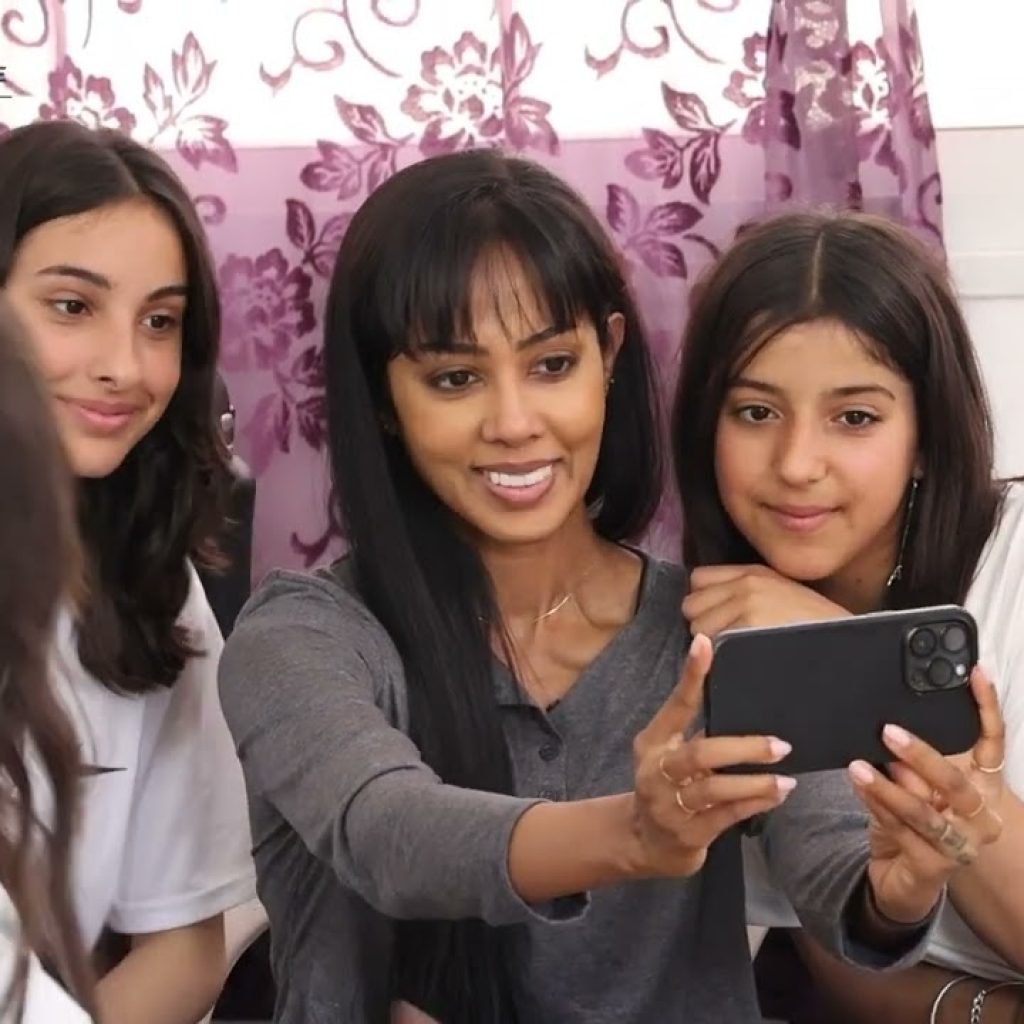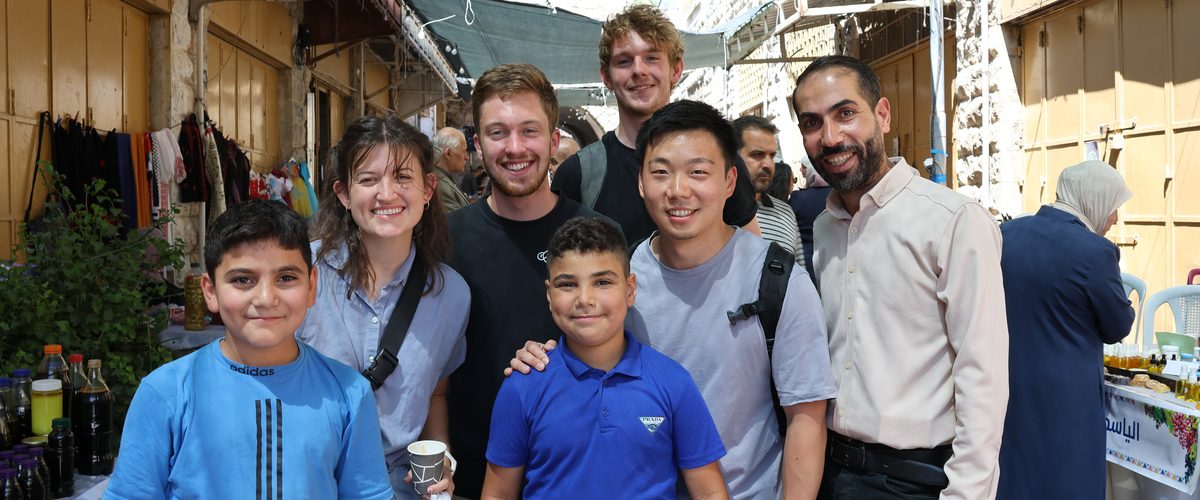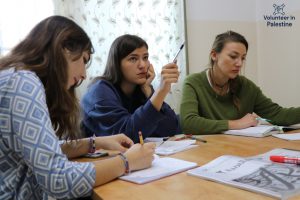How to Introduce Yourself in Palestinian Arabic? Volunteer in Palestine is here to explain! To introduce yourself in Palestinian Arabic and other Levantine variants isn’t just about words; it’s about connecting with locals. This article gives you important phrases to help you talk easily and fit in when you’re in Palestine or other Levantine countries like Jordan, Syria, and Lebanon. Learning these phrases isn’t just about speaking – it’s about showing you respect the local ways.
Understanding Palestinian Arabic and Levantine dialects such as Syrian, Jordanian, and Lebanese Arabic is crucial for effective communication. These Arabic phrases go beyond mere greetings; they convey your willingness to engage with the community on a deeper level. Whether you’re exploring the streets of Palestine or venturing into the diverse landscapes of the Levant, mastering these Arabic expressions will enable you to forge connections and build relationships with the local people you encounter along the way.


Table of Contents
Gateway to Cultural Immersion
Learning to introduce yourself in Palestinian Arabic and other Levantine variants is a gateway to cultural immersion and meaningful exchanges. Embracing the Arabic language and culture can help you build enduring relationships and unforgettable memories in the dynamic Levantine region. Discovering and using these linguistic tools enhances your ability to engage authentically with the region’s rich cultural tapestry.
| English | Palestinian Arabic | Pronunciation |
|---|---|---|
| Good morning | صباح الخير | Sabah al-khayr |
| Good afternoon/evening | مساء الخير | Masa’ al-khayr |
| Good night | تصبح/تصبحي على خير | Tusbah/tusbahi ‘ala khayr |
| Hello | مرحبا | Marhaba |
| Hi | أهلا | Ahlan |
| How are you? | كيف حالك؟ / شلونك؟ | Kayfa halak? / Shlonak? |
| I am [Your Name] | أنا [Your Name] | Ana [Your Name] |
| What’s your name? | شو اسمك؟ | Shu ismak? |
| Nice to meet you (male) | تشرفت بمعرفتك | Tasharraftu bima’rifatik |
| Nice to meet you (female) | تشرفت بمعرفتك | Tasharraftu bima’rifatik |
| Where are you from? | من وين أنت؟ | Min wein anta? |
| I am from [Your Country/City] | أنا من [Your Country/City] | Ana min [Your Country/City] |
| I am a student (male) | أنا طالب | Ana ṭalib |
| I am a student (female) | أنا طالبة | Ana ṭaliba |
| I am an employee (male) | أنا موظف | Ana mawzif |
| I am an employee (female) | أنا موظفة | Ana mawzifa |
Key Phrases for Travelers in Levantine Countries
| English Phrase | Palestinian Arabic Translation | English Pronunciation |
|---|---|---|
| Do you speak English? | بتحكي إنجليزي؟ | bit-hakki ingleezi? |
| Thank you | شكراً | shukran |
| You’re welcome | عفواً | afwan |
| Excuse me | عذراً | ‘adhran |
| Yes | نعم | na’am |
| No | لا | la |
| Please | من فضلك | min fadlak |
| I’m sorry | آسف | ‘asif |
| Help, please | ممكن مساعد؟ | mumkin musa’adah? |
| Where is…? | وين…؟ | wein…? |
Please note that Arabic pronunciation can vary slightly depending on the regional accent and dialect.
Basic Introduction to Yourself in Palestinian Arabic
Learning how to introduce yourself in Palestinian Arabic is a great way to start communicating with locals and immersing yourself in the culture. Below are some essential phrases to help you introduce yourself confidently:
1. Greeting
- Marḥaba! (مرحبا) – Hello!
Pronunciation: MAR-ha-ba (roll the “r” slightly). - Ahlan! (أهلين) – Hi!
Pronunciation: AH-lan.
2. Saying your name
- Ismi [your name]. (اسمي [اسمك].) – My name is [your name].
Pronunciation: ISS-mee [your name]. - Ana ismi [your name]. (أنا اسمي [اسمك].) – I’m [your name].
Pronunciation: AH-na ISS-mee [your name].
3. Where you’re from
- Ana min [country/city]. (أنا من [بلد/مدينة].) – I’m from [country/city].
Pronunciation: AH-na min [place]. - Ana asli min [place]. (أنا أصلي من [مكان].) – I’m originally from [place].
Pronunciation: AH-na ASS-lee min [place].
4. What you do
- Ana taalib/taaliba. (أنا طالب/طالبة.) – I’m a student (male/female).
Pronunciation: AH-na TAH-lib (male) / AH-na TAH-lee-ba (female). - Ana bashtighil [occupation]. (أنا بشتغل [مهنة].) – I work as [occupation].
Pronunciation: AH-na BAH-shtih-ghil [occupation].
5. Your interests or purpose
- Jit 3ashan ata3allam 3arabi. (جيت عشان أتعلم عربي.) – I came to learn Arabic.
Pronunciation: JEET ah-SHAN ah-ta-AL-lam AH-ra-bee. - Baḥibb atta3allam 3an ath-thaqafa al-filastiniyya. (بحب أتعلم عن الثقافة الفلسطينية.) – I love learning about Palestinian culture.
Pronunciation: BAH-hibb at-ta-AL-lam ahn ath-THA-qa-fa al-fi-las-TEE-nee-ya.
6. Asking Questions
- Inta min wain? (إنت من وين؟) – Where are you from? (to a male)
Pronunciation: IN-ta min WAIN? - Inte min wain? (إنتِ من وين؟) – Where are you from? (to a female)
Pronunciation: IN-teh min WAIN? - Shu ismak/ismek? (شو اسمك؟) – What’s your name? (male/female)
Pronunciation: SHOO ISS-mak (male) / SHOO ISS-mek (female).
7. Polite Closing
- Tsharrafna! (تشرفنا!) – Nice to meet you!
Pronunciation: TSHAR-raf-na. - Shukran! (شكراً!) – Thank you!
Pronunciation: SHOOK-ran. - Ma’a as-salaama! (مع السلامة!) – Goodbye!
Pronunciation: MAH-a as-sa-LAA-ma.
To Conclude On How to Introduce Yourself in Palestinian Arabic
This guide provides essential phrases in Palestinian Arabic and other Levantine dialects (Jordanian, Syrian, and Lebanese), facilitating communication and connection with locals in those regions.
Whether greeting someone, inquiring about their name, or discussing origins, these Arabic phrases break the ice and foster relationships. Mastering these simple expressions can significantly enhance interactions, making them more pleasant for everyone involved.
Tags: beginner’s guide to Palestinian Arabic introductions, learn to greet and introduce yourself in Palestinian Arabic, learn to introduce yourself in Palestinian Arabic, Palestinian Arabic for beginners: self-introduction



